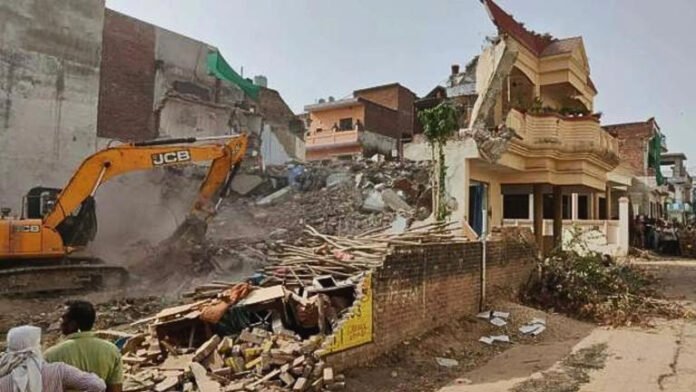The Supreme Court of India criticized the Uttar Pradesh government for the illegal demolition of a house in Maharajganj district, ordering the state to pay ₹25 lakh in compensation. During a recent hearing on November 6, 2024, the court labeled the government’s actions as “high-handed” and lacking legal authority.
Key Points from the Supreme Court’s Ruling
Illegal Demolition: The court ruled that officials demolished the home without following due process. Notably, they served no formal notice to the homeowner, Manoj Tibrewal Aakash, beforehand. Instead, authorities announced the demolition through loudspeakers, which the court found unacceptable.
Compensation Ordered: The Supreme Court ordered the UP government to pay ₹25 lakh as punitive compensation to Aakash. This amount serves as interim compensation, allowing Aakash to seek further legal action if desired.
Accountability Demanded: The court directed UP’s Chief Secretary to investigate the officials involved in the demolition and to apply disciplinary actions if necessary. The court emphasized that such actions must face consequences.
New Guidelines for Future Actions: To prevent similar incidents, the Supreme Court outlined procedures that all states must follow before demolitions for road widening or similar projects. These include verifying road dimensions, issuing formal notices for encroachments, and giving residents a chance to respond.
Court’s Remarks
Chief Justice DY Chandrachud sharply criticized the UP government’s approach, stating, “You can’t just roll in with bulldozers and demolish homes overnight.” He stressed that demolishing homes without legal procedures violates citizens’ rights. Justice JB Pardiwala also pointed out the need for formal notifications over public announcements, urging legal adherence in such cases.
This ruling reinforces property rights and sets a precedent for state authorities, underscoring the need for due process in demolitions.



